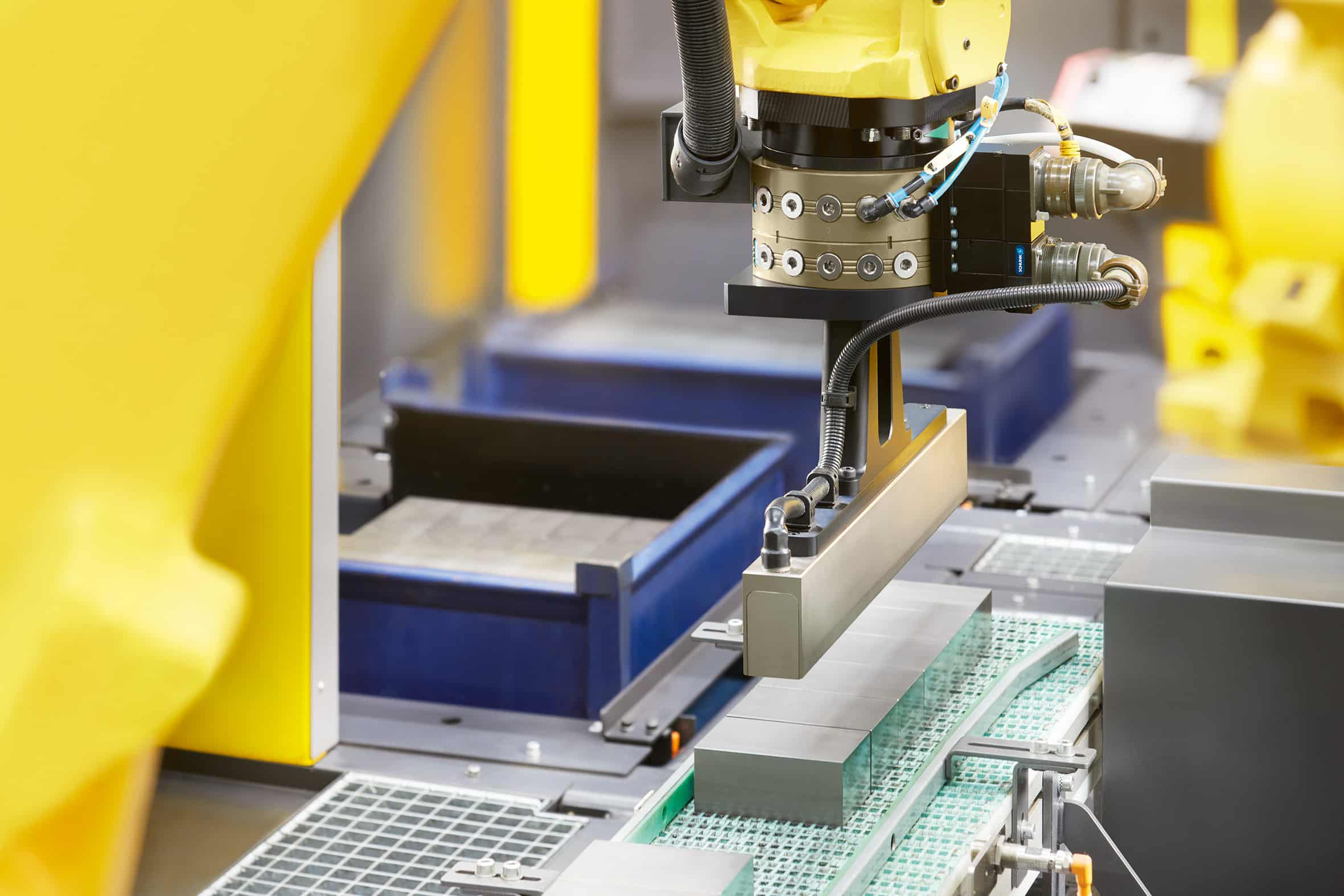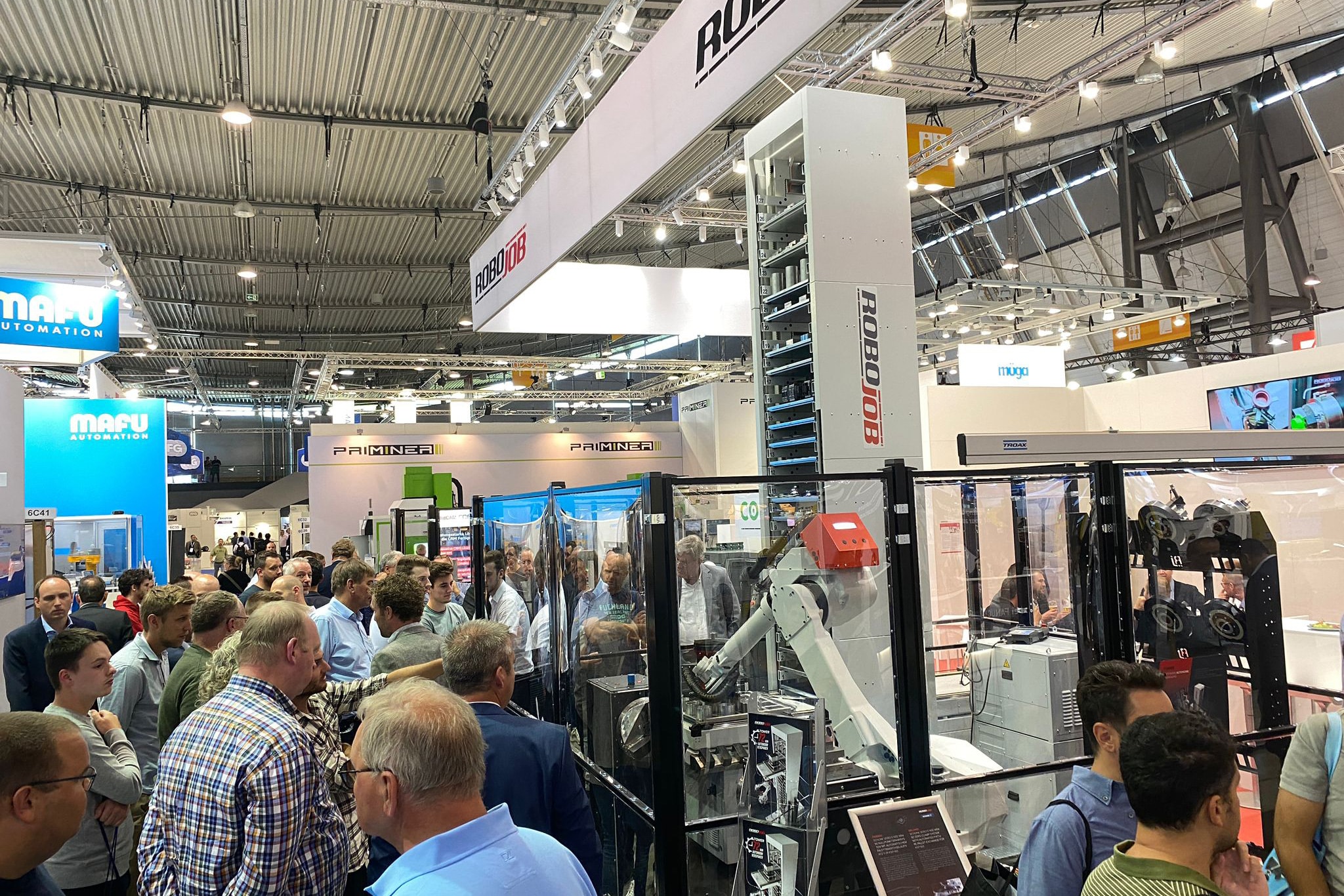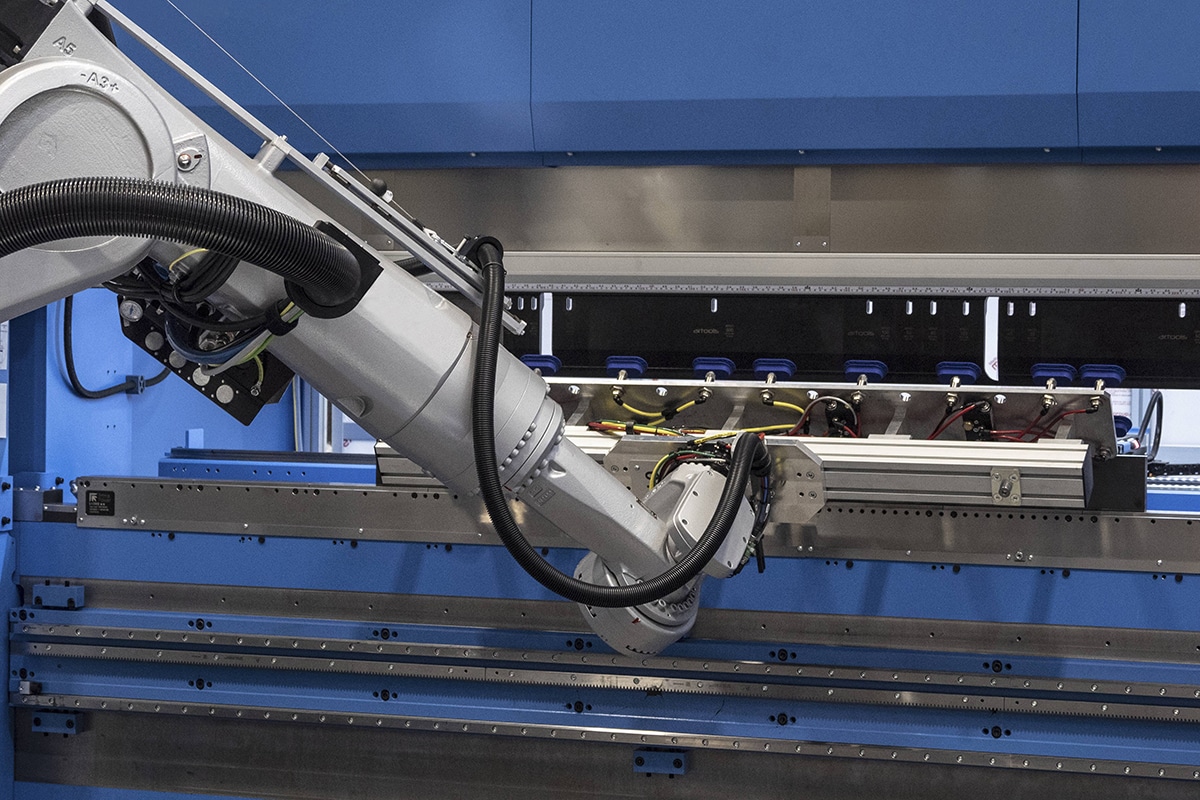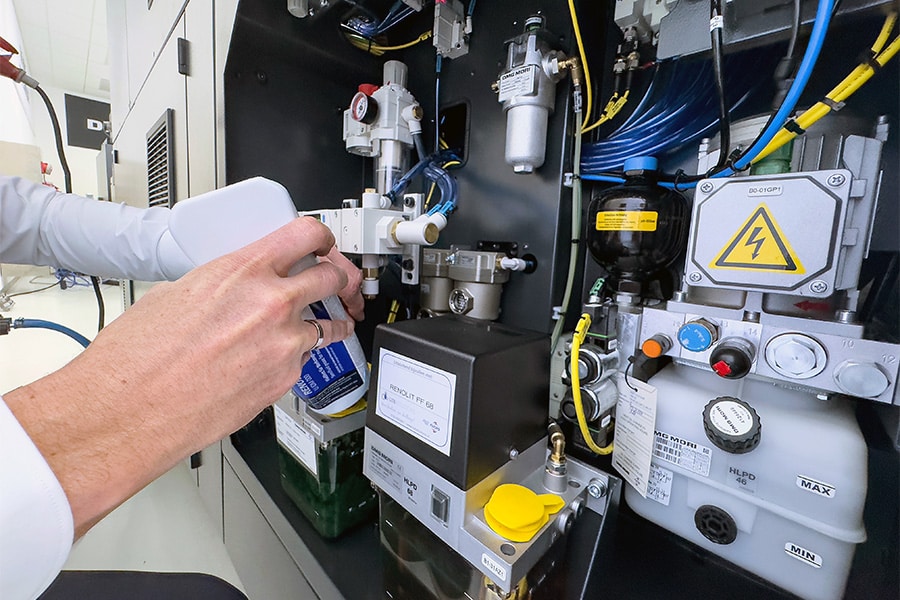
Leave fluid management to experts; it pays off more than it costs
Experienced machinists should not waste time on fluid management
At many machining companies, it is an ingrained habit that some machine operators are also responsible for fluid management and machine maintenance. However, wages have risen considerably in the past two years, while experienced machinists are increasingly difficult to find. So should you still saddle those scarce and expensive skilled workers in your company with fluid management? After all, they are much more valuable to the company if they can devote themselves full-time to what they do best: producing products. More and more companies are realizing this, but to whom and to what extent should you outsource that fluid management, and what can you expect? We asked Dennes Lagendijk, director/owner of Lubsolutions Benelux BV in Gorinchem.
'Within the machining industry important developments are taking place,' Lagendijk states. 'Significant investments have been made in renewing and automating the machine park, for example, with more and more CNC machining centers being equipped with robots/cobots and/or linked to pallet supply/discharge systems. Not only is the machining industry thus committed to efficient low-management and, if possible, completely unmanned production, scarce skilled workers can then take several machines under their wing, solving the lack of experienced machinists, at least temporarily. However, unmanned/man-poor production also has major implications for the demands placed on the quality, durability and performance of the tools, lubricants and metalworking fluids used.'

More expertise required
'Higher requirements mean that more specialized customization is needed when selecting and deploying machining fluids in the right concentrations,' Lagendijk continues. 'This is also because in man-arm manufacturing, the parameters of machines are often scaled back somewhat to counteract tool wear or breakage, among other things. To compensate for this, you can use higher-quality tools and also choose the latest fluid generations. These have an enormous positive effect on tool life, which can increase by a factor of two to three. This immediately results in higher production yields, because every tool change you have to do in between means production downtime. That's how you win back production time.'
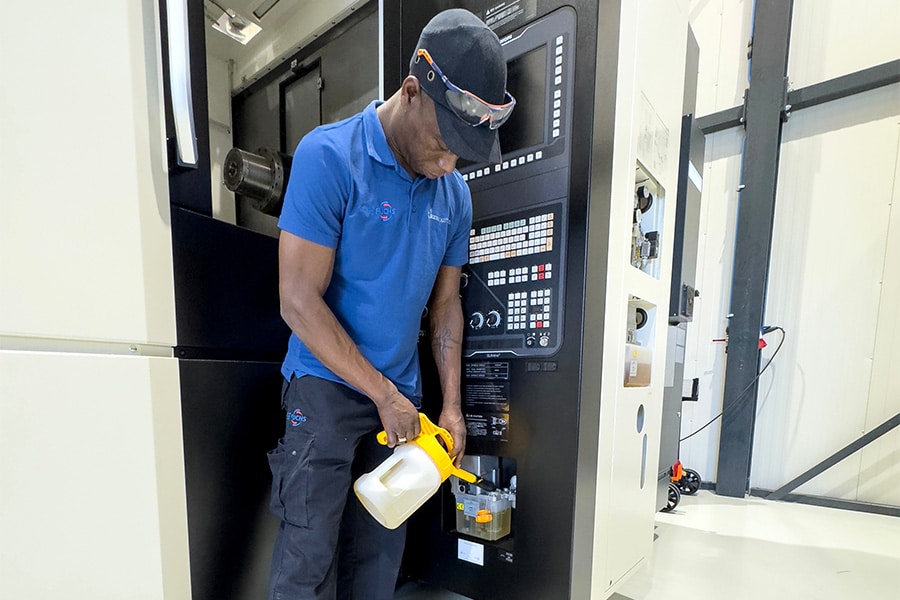
Specialist work
Not only because the effects of good and professional fluid management have an increasing impact on production results, but also because of increased health & safety requirements, it is almost impossible for companies to find the optimal way through this themselves. 'Another factor is that the disposal and processing of used emulsions has become considerably more expensive,' Lagendijk emphasizes. 'Especially when they contain so-called 'substances of very high concern' (ZZS). ZZS are substances hazardous to humans and the environment such as heavy metals and pfas/pphos. Some waste processors prefer not to handle liquids containing these substances and if they do, only at extremely high rates. So you have to pay very close attention to that when selecting metalworking fluids because there are big differences in this.'

Overall
'Many companies now do not know how to organize their fluid management to avoid problems and high costs,' Lagendijk continues. 'This also because, as mentioned, there are many factors to consider. For example, in addition to the purchase and proper preparation of fluids, there are also numerous related techniques and systems by which processing fluids can be monitored and kept in optimal condition. For example, through regular checks for concentration, bacterial growth, leakage oil, foaming and certain chemical values. But leak oil removal and filtration are also important in order to keep the fluid clean and optimize the tool life. This is called "good housekeeping" and not all companies are aware of its importance. This is partly because increasing demands in the areas of accuracy and cleanliness (think of the demanding semiconductor and medical industries) make it necessary to work ever more precisely and cleanly. As a total supplier, we can take care of all or part of the liquid management. Your skilled and experienced operators can then concentrate on production while in the background we ensure that the right fluids are used and that they are kept in optimal condition. That this results in maximum production efficiency is obvious, while there is usually also an interesting reduction in the Total Cost of Ownership.'
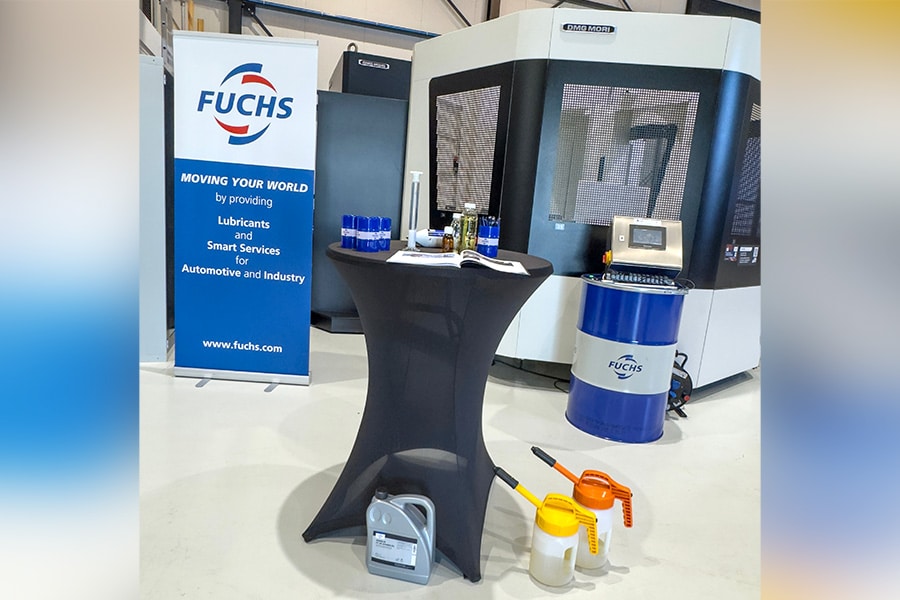
A mathematical example
Suppose you have fifteen machine tools. If you do the maintenance of lubricants and coolants yourself, an employee would easily be spending two days a month checking, topping up and/or changing them. This costs around €15,000 in gross labor per year. But it doesn't stop there. In practice, machines regularly stand still because the fluid level is too low or because the fluids have to be replaced prematurely due to poor maintenance (ignorance). Another consequence of poor maintenance is that employees are more often sick at home with respiratory and/or skin complaints due to the formation of bacteria and/or smoke. In addition, the wrong product and/or concentration can have a very negative impact on machining quality and tool life. Added together, this also results in a loss to the company of almost €20,000 per year. So in terms of direct, indirect and hidden costs, you can easily spend around €35,000 per year on in-house fluid maintenance, not to mention the cost of purchasing and disposing of fluids and lubricants. If you outsource the complete fluid management to Lubsolutions, the combined costs go down immediately by about 30-45%. But the gain, of course, is much higher. Because the employability of your people increases, machines stand still less often and you save on the purchase and disposal costs of fluids because they last much longer through optimal maintenance. Tool life also goes up and you can load your machines more intensively so that productivity increases.

